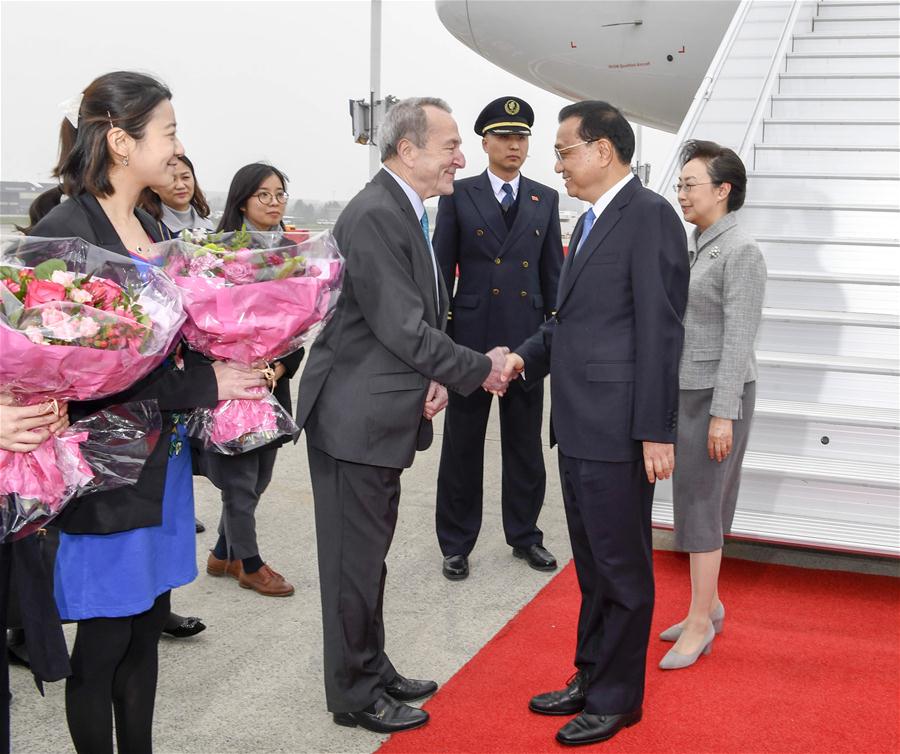Chinese premier arrives in Brussels for China-EU leaders' meeting
Chinese Premier Li Keqiang arrived in Brussels on Monday for the 21st China-European Union (EU) leaders' meeting.
Chinese Premier Li Keqiang arrived in Brussels on Monday for the 21st China-European Union (EU) leaders' meeting.

Chinese Premier Li Keqiang arrives in Brussels, Belgium, April 8, 2019, for the 21st China-European Union (EU) leaders' meeting. [Photo/Xinhua]
China and Europe are two major forces and markets in the international arena, and are important cooperation partners to each other, Li said upon his arrival.
Li said he looks forward to having an in-depth exchange of views with the European side on bilateral ties and other issues of common concern on the basis of mutual respect, consultation, coordination and win-win outcomes.
China, he added, hopes that the two sides will reach broad consensus on practical cooperation and make substantial progress on their investment agreement negotiations, so as to further enrich the China-EU comprehensive strategic partnership and steer their relationship towards higher levels, broader areas and deeper degrees.
China firmly supports the European integration process, the EU's unity and growth, and Europe's more important role in international affairs, said the Chinese premier.
In the current situation, China is willing to work with the EU to strengthen coordination and cooperation on international issues, uphold multilateralism and free trade, consolidate the global and strategic significance of their relations, and contribute to world peace, stability and prosperity, he added.
During his stay in Brussels, Li will co-chair the China-EU leaders' meeting with European Council President Donald Tusk and European Commission President Jean-Claude Juncker. They will jointly attend a signing ceremony and meet the press.
Li and Juncker will meet with representatives attending the fourth China-EU Innovation Cooperation Dialogue. Li will also meet with Belgian Prime Minister Charles Michel.
This is the first stop of the premier's five-day tour to Europe. After Brussels, Li is scheduled to pay an official visit to Croatia, where he will also attend the eighth leaders' meeting of China and Central and Eastern European countries.

